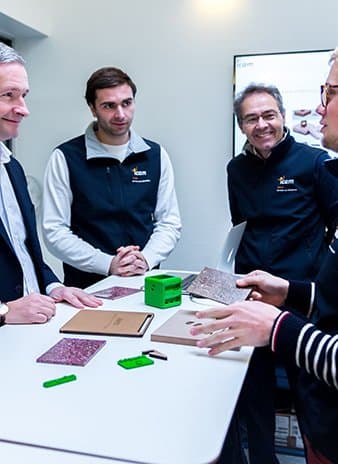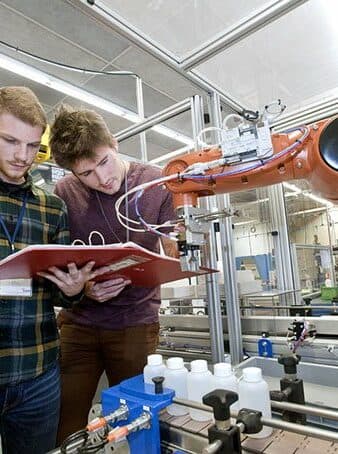Road surface analysis and exploratory research of composite recycling physicochemical conditions
Master thesis- Axis:
- Structures et matériaux innovants
- Site :
- Nantes
- Type:
- Master thesis
- Supervising person(s):
- Eric Le Gal la Salle
The same kind of experimental methods will be used in both studies. Priority is given to Road Surface Analysis study.
- Road surface analysis
Context
After coating or ageing, owners of roads or maintenance companies may need to analyze the nature of the binder of road surface compounds (asphalts). It is obtained by blending two components in different proportions, each bringing specific properties. Ageing may also modify these properties. The current method uses perchlorethylene. It dissolves the organic fraction and separate it from the aggregates. The aggregates can then be weighed and some properties of the binder be measured. Perchlorethylene does possess some advantages such as an excellent solving ability and a fireproof behavior but will soon be forbidden due to its toxicity and potential environmental consequences.
Some works already performed at Icam, Nantes campus, already allowed to find safer solvents and conditions to separate the binder from the aggregates. Yet, the cleaning is not as efficient as what is obtained with perchlorethylene. Supercritical carbon dioxide is already used in some cleaning processes. The question that must be answered is: can supercritical CO2 be a convenient substitute to perchlorethylene ?
Work
Samples of known compositions will be made in the laboratory. Operating conditions will be determined in order to find the best conditions (temperature, time, concentration) allowing to dissolve the binder and separate it from the aggregates. The consequences of this method on the properties of the binder will be evaluated. If the results are good enough, schematic and specifications required to make a laboratory device will be provided.
- Composite recycling
Context
The same methodology may be used to recycle some composite materials. Until now, all studies done at Icam used water (instead of CO2) as a degradation medium, requiring high temperature and pressure. In order to speed the degradation kinetic up, catalysts may be used [1]. Soft experimental conditions allowing the recycling of carbon epoxy composites are looked for.
Work
Looking for catalysts and media allowing to accelerate resin degradations in mild conditions. After bibliographic researches, and process adjustments, systematic studies (time, temperature) will be performed. Optimized experimental design methods will be favored. Degradation kinetics will be obtained by samples weighing.
Reference:
[1] Tuan Liu, Meng Zhang, Xiaolong Guo, Chengyun Liu, Tian Liu, Junna Xin, Jinwen Zhang. Mild chemical recycling of aerospace fiber/epoxy composite wastes and utilization of the decomposed resin, Polymer degradation and stability, 2017- required skills:
-
Observation, experiment and analytical ability, care in experimental conditions and results analysis.




